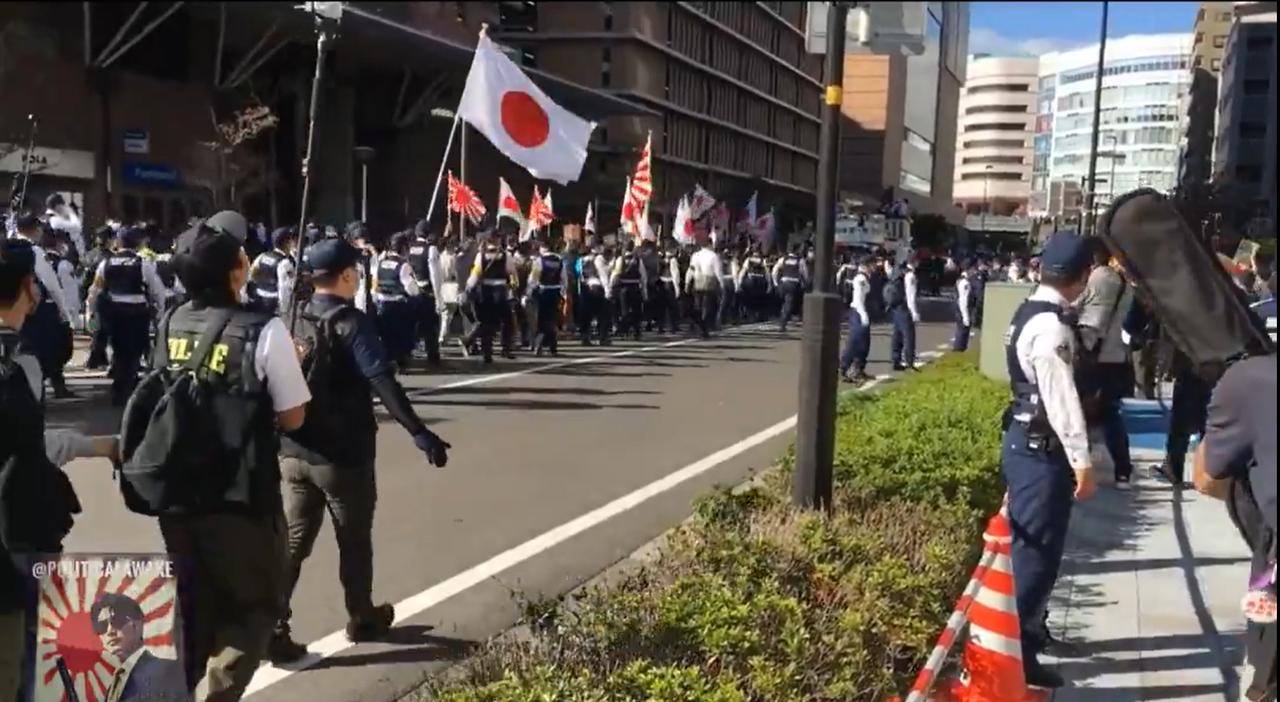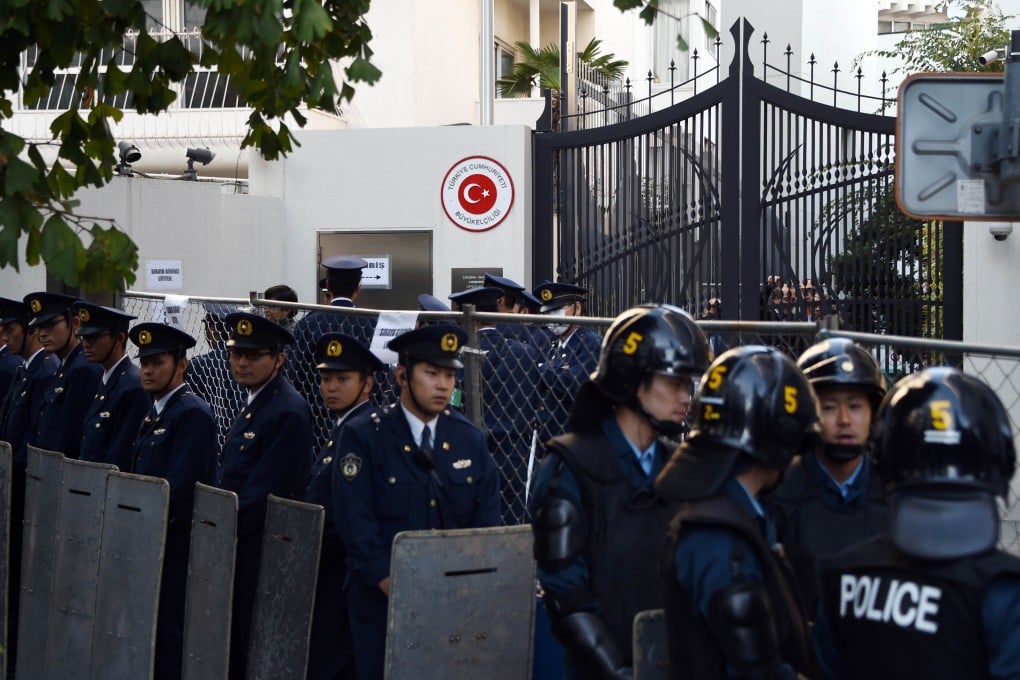
On 2023, the far-right Japan First Party, despite its limited political influence, staged a protest demanding the deportation of pro-PKK Kurdish asylum seekers in Japan. While small in numbers, this protest exposed underlying societal tensions and attracted international attention.
Responding swiftly, Türkiye's Kurdish-oriented Democratic Regions Party (DEM Party) placed the issue prominently on its agenda.
Party deputy Meral Danis Bestas stated emphatically, "We will not remain silent in the face of racism and hate directed at Kurds in Japan. We urge Japanese authorities to implement effective measures against racist attackers, respecting human rights and justice."
Yet this issue is not capturing attention for the first time. In previous years, open PKK propaganda and fundraising activities linked to the organization in Japan prompted the Turkish government to intervene.
Now, each side is calling for more inter-party cooperation to address legitimate community concerns in Japan while ensuring the rights and dignity of a vulnerable refugee population..
The Kurdish presence in Japan is primarily traced to the early 1990s, driven by socio-economic pressures and tensions in Türkiye. Most of these Kurdish migrants originate from approximately twelve villages belonging to the Mahkan tribe, located around Maras Province.
Coupled with land that was unsuitable for agriculture and restrictive policies on seasonal grazing caused by PKK terrorism, these families found their livelihoods severely compromised.
The migration pattern began with individual initiatives to the city of Kawaguchi, where many Kurds currently reside. As of recent data, roughly 1,500 Kurds are officially recorded in Kawaguchi alone, and around 1,000 Turkish nationals reside in Warabi City, most of whom are Kurds.
Despite their long-standing presence, Kurdish migrants face significant legal and bureaucratic challenges in Japan.
The overwhelming majority remain in legal limbo, categorized as "Kari-homen," a form of supervised release that denies them full residency status, citizenship, or official refugee recognition. Only a very small number have obtained legitimate residency through marriage or entrepreneurship.
This legal status significantly restricts their access to basic public services, including healthcare, education, and legal employment.
Many work informally in highly undesirable sectors, particularly in demolition or construction known locally as the "3K jobs" (kitsui, kitanai, kiken—meaning difficult, dirty, and dangerous).
Due to their precarious legal situation, their earnings cannot be deposited into bank accounts, further marginalizing them economically and socially. The Kurdish community has gradually established a distinct neighborhood within Tokyo, referred to by locals as "Warabistan."
At its peak, the community reportedly reached approximately 3,000 members, forming a noticeable enclave that has attracted both curiosity and controversy.

Significant tensions have emerged in recent years surrounding the terrorist group PKK's activities in Japan.
Various Kurdish cultural organizations, such as the Kurdish-Japanese Cultural Association, have hosted events ostensibly promoting Kurdish culture, but these gatherings frequently include explicit support for PKK ideology, featuring flags, posters of imprisoned PKK ringleader Abdullah Ocalan, and militant songs.
These actions have caused unease among the Japanese public and brought the issue to the attention of local authorities.
In particular, a February 2024 Nowruz celebration held in Saitama, north of Tokyo, sparked significant controversy.
The event openly displayed PKK symbolism, including PKK ringleader Ocalan posters and militaristic propaganda, leading to strong objections from Japanese residents.
During those days, Japanese journalist Ishii Takaaki publicly criticized Kurdish individuals who, according to him, undermined the friendship between Japan and Türkiye. This tension was also amplified by Turkish expatriates in Japan through social media campaigns.
Following a wave of public attention on this issue, government actions led Japan to target PKK-affiliated organizations and freeze their bank accounts. At the time, then Foreign Minister Yoko Kamikawa called for cooperation with Türkiye.
Despite the clear presence of PKK sympathizers within these events, it is crucial to note that equating all Kurdish residents in Japan with PKK affiliates would be a misleading generalization.
Today's anti-Kurdish demonstration by far-right groups saw limited participation, yet the events leading up to this moment reflect tensions extending beyond this small gathering.
As Japan approaches elections in July, certain politicians—including some from the ruling party—have brought this issue to the forefront, supported by documentaries and articles produced by media outlets such as Sankei Shimbun and Netto-Uyo.
This, in turn, has amplified discussions in Japanese public discourse, prompting the public broadcaster NHK to produce content from a more liberal perspective, aiming to counter the prevailing narrative.

Local support for the PKK in Japan has complicated the group's activities, creating significant challenges for the Japanese government. Certain Japanese political figures and civil society organizations have provided direct or indirect support to the PKK, potentially undermining Japan's anti-terrorism strategies.
The presence and activities of PKK supporters within Japan necessitate increased efforts both domestically and internationally in counterterrorism initiatives.
The issue isn't limited to the community that has existed since the 1990s but also encompasses recent arrivals. Additionally, there are voices within the Japanese public calling for more active measures and strict enforcement of existing laws.
Some analysts even suggest that Japan might consider imposing visa requirements on Turkish citizens in connection with this situation.
Ultimately, addressing the multilayered problems of a small community demands focused efforts, and the longer these problems remain unresolved, the louder and more diverse the expectations and voices from all sides become.